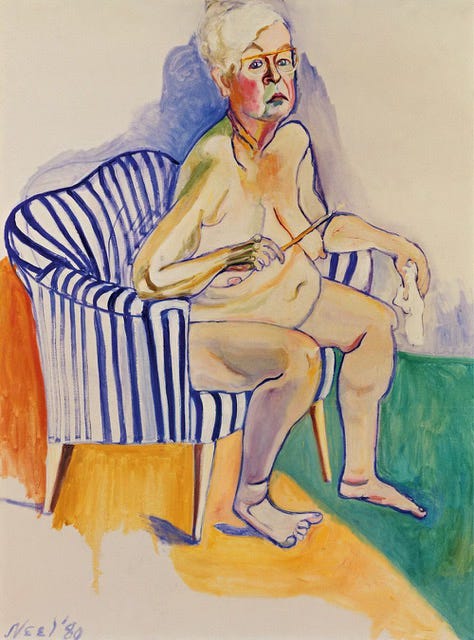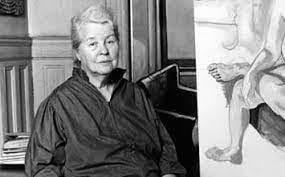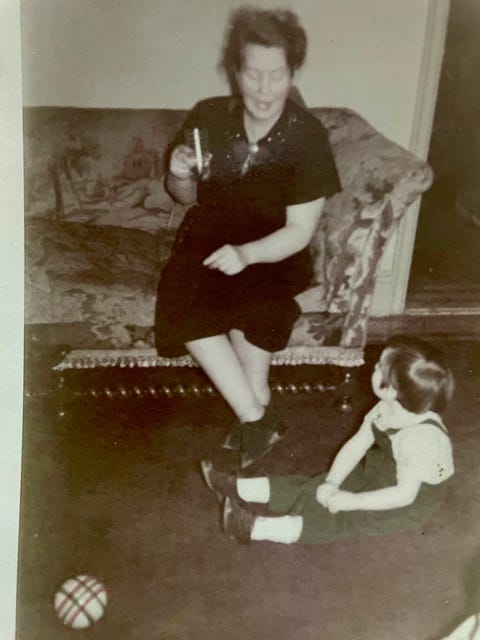How to preserve and recreate memories for your writing
A story about the importance of research and taking notes.
For decades, I’d wanted to write an essay about my visit, in December 1980, with the famous portrait artist Alice Neel.
I knew my parents had been friendly with Neel and her lefty gang in New York in the late forties, though had no idea to what degree. She’d painted a portrait of my father that was his prized possession. Going through stacks of old letters left by my mother after her death in 2012, I found one from Sam Brody, Alice Neel’s Communist lover and father of one of her sons; it was full of affection for my parents from both Alice and Sam. It made me proud to realize their bond had been much closer than I’d realized.
When the Metropolitan Museum in New York opened a huge retrospective of Alice Neel’s work in the spring of 2021, bringing her life and portraits much-deserved world attention, I felt this would be the perfect time to produce my article.
Alice Neel’s self-portrait at the age of 80, in 1980
But there was a huge problem: my visit with Alice had taken place forty-one years before. My memory of the specifics of our encounter was dim, though I could remember a few things clearly, especially the moment when she erupted in anger at me. I emailed my then-husband, who’d been with me on the visit, asking, “What do you remember about our time with Alice?”
He replied, “Only that at one point she was really hard on you.”
I needed more than that.
And then I remembered that immediately after returning from New York, I’d written a long poem about meeting Alice and submitted it to CBC radio’s showcase for Canadian writers, Anthology, which bought it and hired me to read it. I found the poem in a dusty file folder and was thrilled that it included vivid details of our meeting and chunks of dialogue I could use almost verbatim in the essay.
To fill in other blanks in my memory, I turned to the internet, where I found articles about Alice and a documentary of her being interviewed in her apartment; they helped me bring back the place, her voice, her manner.
How had I got in touch with her, I wondered, by letter, by phone? I suspected Dad had given me contact information. Luckily, I’d kept a stack of old address books, and after flipping through the pile, located the one from the early eighties. Inside, I found Alice Neel’s phone number and address. I remembered how proud I was to print that name and number in my address book.
And so the essay came together from my shreds of memory, supplemented by what I gleaned from poem, internet, and address book.
“Portrait of the Artist: my visit with Alice Neel” was published in the terrific literary magazine The New Quarterly in the fall of 2021.
Last year, going through a box of family photos, I was startled to discover one of me, aged about two, sitting on the floor of my grandparents’ apartment in New York. Perched nearby on my grandmother’s hideous sofa, holding a drink, is Alice Neel. My family used to go regularly from our home in Halifax to New York to visit Dad’s parents, and this time, Alice must have come over to see us. She and I are checking each other out, as we would do again some twenty-eight years later.
Memories fade. The essay would not exist if I hadn’t taken the time to jot detailed notes after the visit. What will happen when everything is digitized? We’ll miss the pleasure of flipping through old letters and notebooks and scribbling on scraps of paper.
But however you do it, when something interesting happens, as soon as possible, take notes.
FYI, the essay, now titled My Father’s Face, is included in my new memoir-in-essays Midlife Solo, and is reprinted on the Articles page of my website bethkaplan.ca. Portions of this essay first appeared on The New Quarterly website as “Finding the Form.”






Take notes. Great advice. Thank you.
Excellent advice! I'm told I have a ridiculous memory for details, but I'm also a stickler for accuracy. Your suggestion spurs me on to write notes to ensure accuracy in future writing.